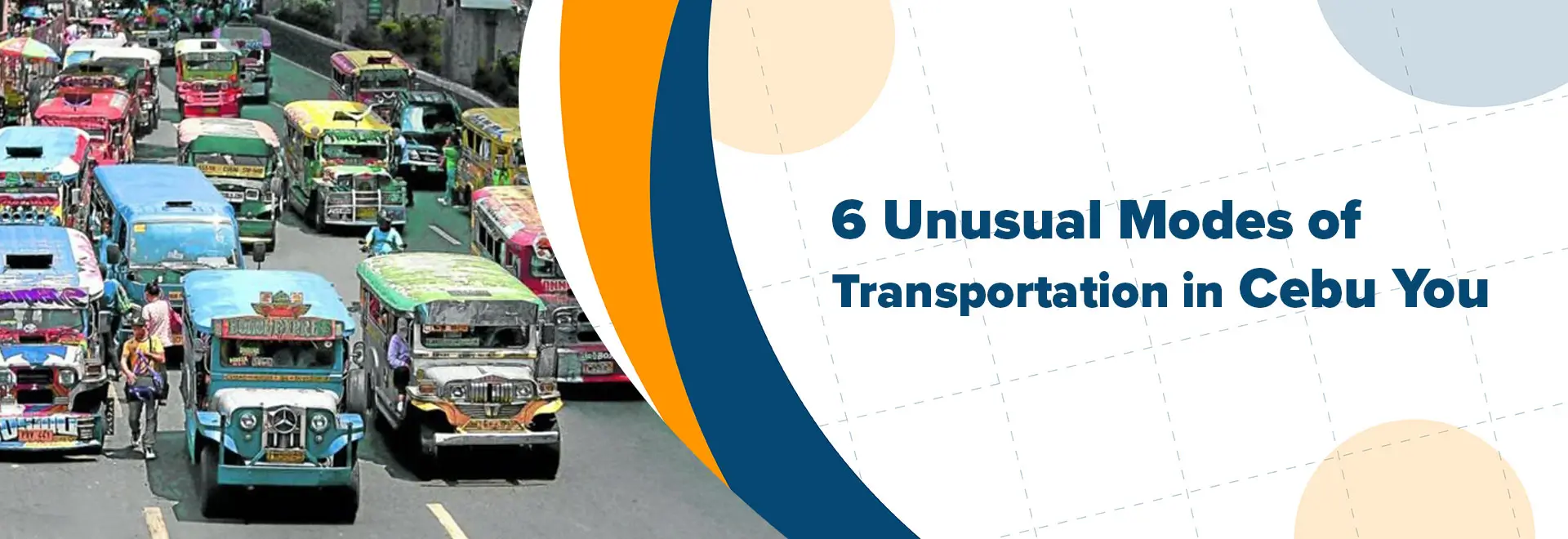
6 Unusual Modes of Transportation in Cebu You Must Try
Cebu, Philippines
Cebu is one of the most visited tourist destinations in the country because of the beautiful sceneries it can offer to both local and foreign visitors. To add more, Cebu is home to delicious local cuisines, singers, English language schools, and unique modes of transportation.
Did you know that the modes of transportation in Cebu differ greatly from those of other places in the Philippines? If you’ve been to Cebu, you must have experienced the different types of transportation in the province. Have you tried riding on a traditional jeepney, a tricycle, or a habal-habal? These are just a few of the modes of transportation in Cebu that make the place unique.
If you have never been to Cebu, this is the best time to plan your visit and experience the uniqueness of its public transportation. If you are a language program student and decide to visit the Philippines for a language study, then Cebu is your best choice.
Cebu is where QQEnglish is located. Students get to enjoy a wonderful and unforgettable English language study while they explore Cebu’s wonders and hidden gems.
This article will give you insights of the types of transportation in Cebu. These insights will give you more information about Cebu’s local transportation and what to expect when you are here.
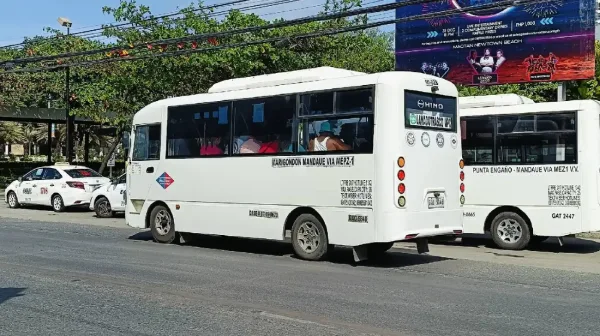
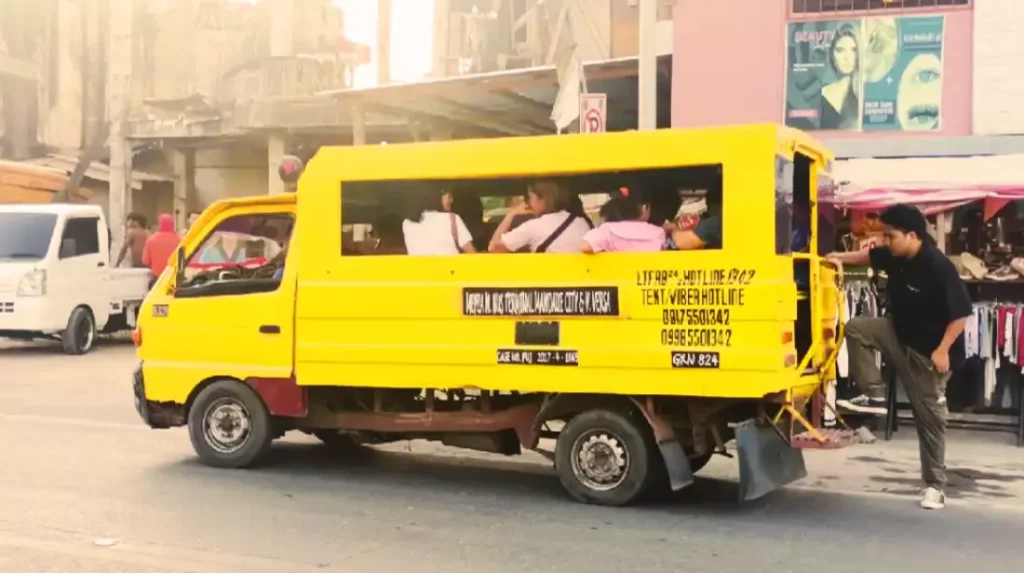
What are the Modes of Transportation in Cebu?
To both locals and foreigners, any kind of transportation in Cebu is helpful for them because it can take them wherever they want to go within the city or the entire province. Generally, its modes of transportation have been an integral part of the lives of every Cebuano.
To give you insights, we have listed the top unique kinds of transportation in Cebu and what to expect about them when you start riding. At the end of this article, ponder upon these vehicles and get excited on your first ever ride experience.
Jeepney
Common in the Philippines, jeepneys are the primary modes of public transportation for Filipinos. In Cebu, jeepneys are distinct because they are smaller than the traditional jeepneys in the country.
The traditional jeepney in Cebu is a multi-cab (a small vehicle used for public transport only in the Philippines). Traditional jeepneys in Cebu hold about a maximum of 16 passengers 1 on the front seat.
Recently, the Philippine government announced the phase-out of traditional jeepneys. Then, modern jeepneys came out which are more advanced and are airconditioned compared to the old types. Modern jeepneys in Cebu look like mini buses and can accommodate up to 24 passengers.
What to Expect
- When you ride on a jeepney, expect a “knee-to-knee” contact with the person sitting in front of you. If you want to pay for your fare, it’s either you receive it from other passengers and pass it to the driver or you pass it to other passengers and ask them to pay for you. You will often hear the words “Palihog bayad” (Please pay).
- The fares in Cebu’s jeeps vary from one destination to another. It was just recently imposed that the minimum fare is Php13.00 for traditional ones and Php15.00 for modern ones.
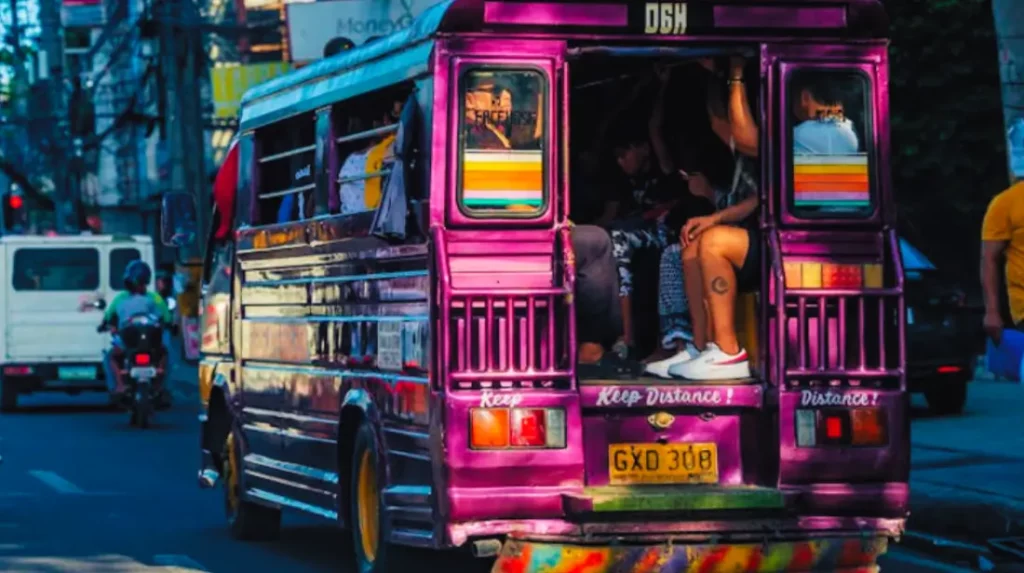
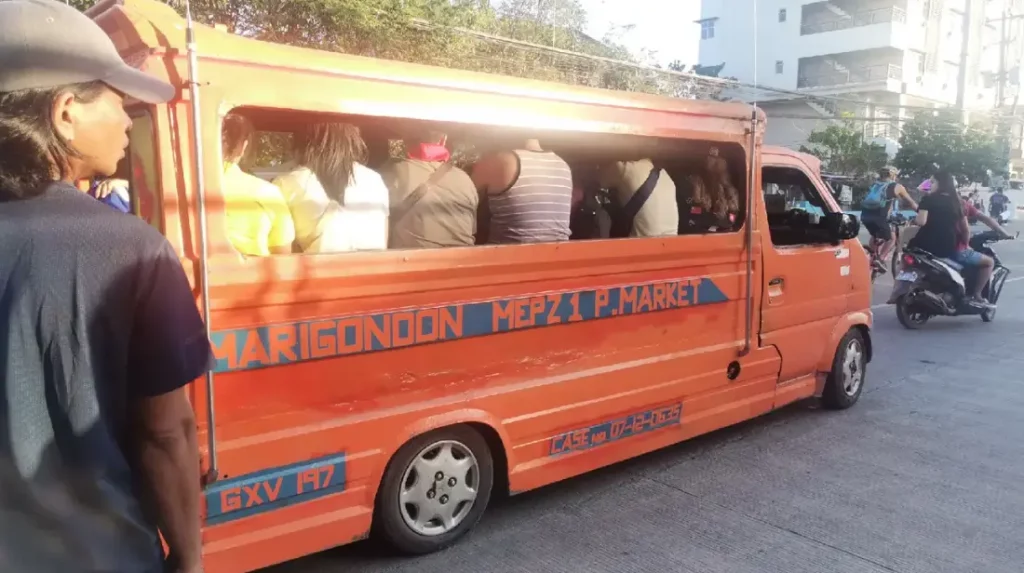
- Jeepneys situated in local terminals usually wait for passengers until the jeep is full. You’d hear drivers saying “walo-walo lang bi wala’g tuo, sibogi gamay,” (Please move; there should be 8 people for each side). The jeep is then crowded.
- Smoke and dust are often a challenge. Wear a mask when you go out and ride on a jeepney.
Tricycle
A tricycle is a three-wheeled vehicle only found in the Philippines. It is a source of income for some Filipinos especially in the provinces. Cebu is not an exception. In some remote areas in the province, tricycles are used as the main local transport, especially of students who have to travel from one place to another.
Cebu is a big island and tricycle styles and appearance also vary. For example, in Mactan Island, tricycles carry 4 passengers inside their sidecars and a maximum of 2 passengers on the back ride (driver’s seat).
Usually, there are a total of 8 passengers and a separate compartment for groceries or luggage is set in case of passengers who have a lot to carry.
What to Expect
- You’d feel strange if it’s your first time because you’d think that the sidecar would separate from the main motorcycle when you step on it.
- Congestion is real inside the tricycle, but there’s always space to adjust.
- The minimum fare is Php13.00, but it depends on your destination.
- No tricycles are allowed to operate along major highways.
- Unlike jeepneys, tricycles can pick up and drop off passengers.
Habal-habal
If you are up for a joy ride under the heat of the sun, or if you are on a rush to go to work, habal-habal is your best option. The “habal-habal” is the term coined for motorbikes. Simply, a habal-habal is a motorbike that operate anywhere in Cebu.
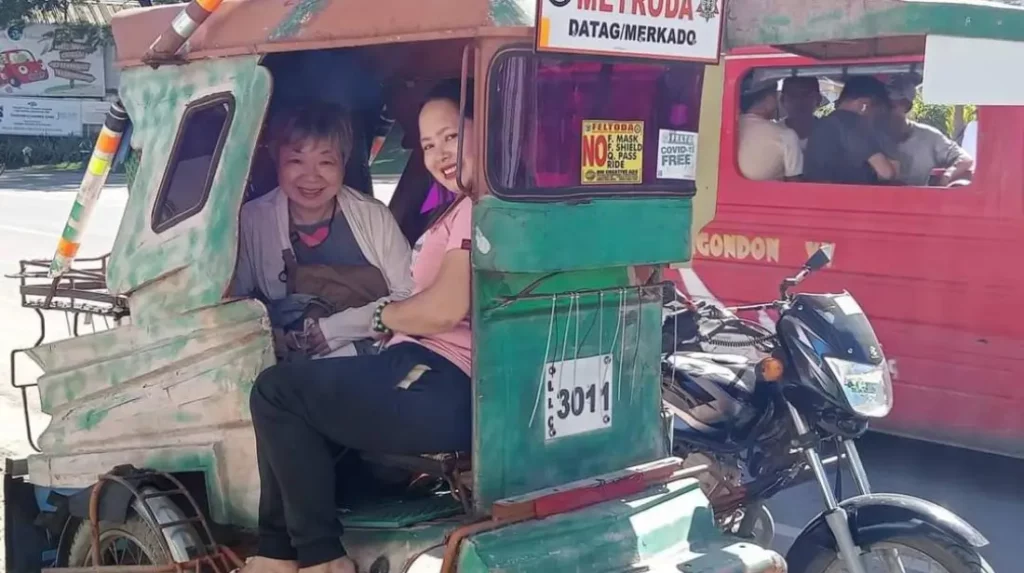
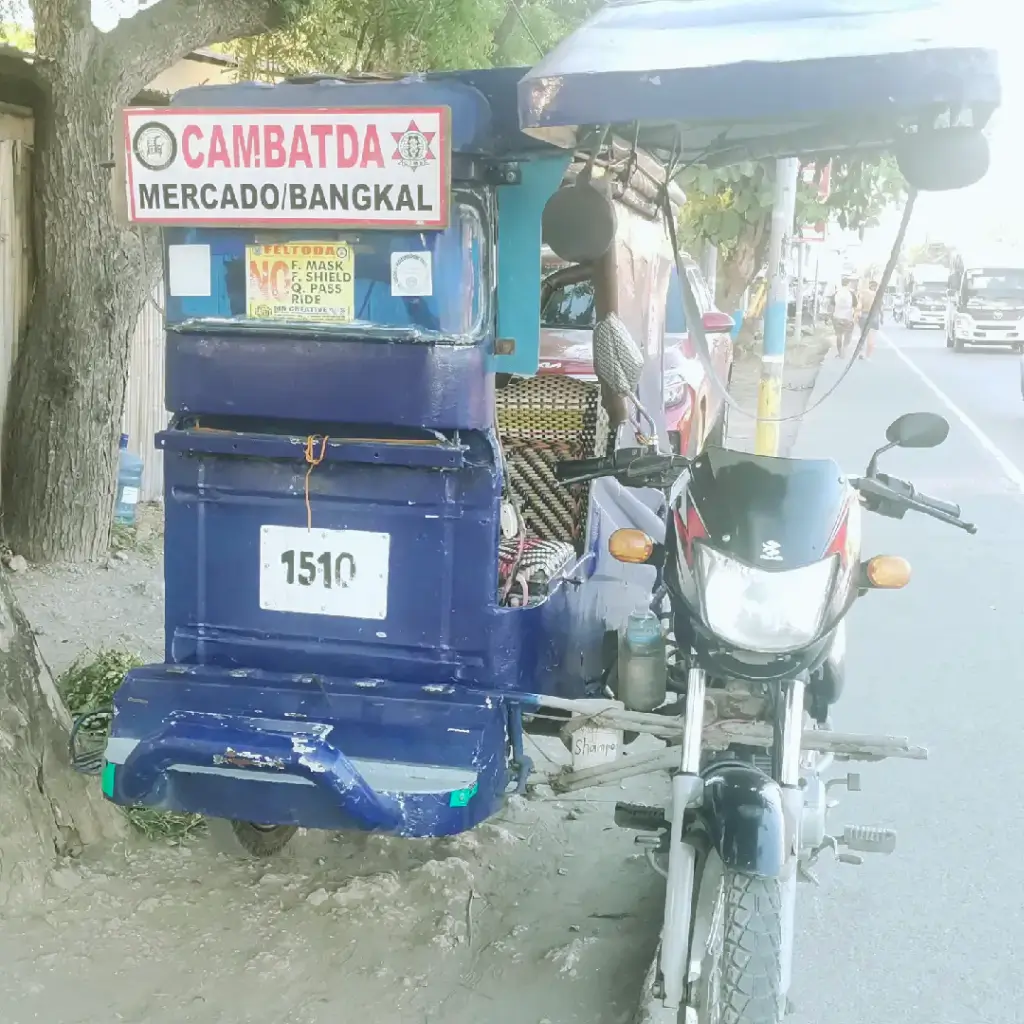
You can find this mode of transportation in Cebu wherever you are on the island. It is the fastest way to get to your desired destination. It is more convenient than jeepneys because of its size as it can easily go through traffic congestion (if you are in the city).
In some rural areas in Cebu, the habal-habal is also a source of income. It navigates through narrow streets and even winding roads up to the mountain. The allowed number of passengers for one unit of motorbike is 2 (driver and passenger), but the habal-habal in Cebu can accommodate 4 or 5.
What to Expect
- You hop on the motorbike and sit behind the driver, so expect close contact between you and him.
- Helmets are one of the most important gears when driving or riding a motorbike, so expect to wear one whether you traverse anywhere.
- The fare rate differs. Some drivers would ask you to pay a fare of not less than Php100.00 or Php50.00 for a half-kilometer ride.
If you don’t like to take the local habal-habal, you can book a ride with motor taxis like the Angkas which actually operate all over the country. Just download their app, register, and you’re good to go.
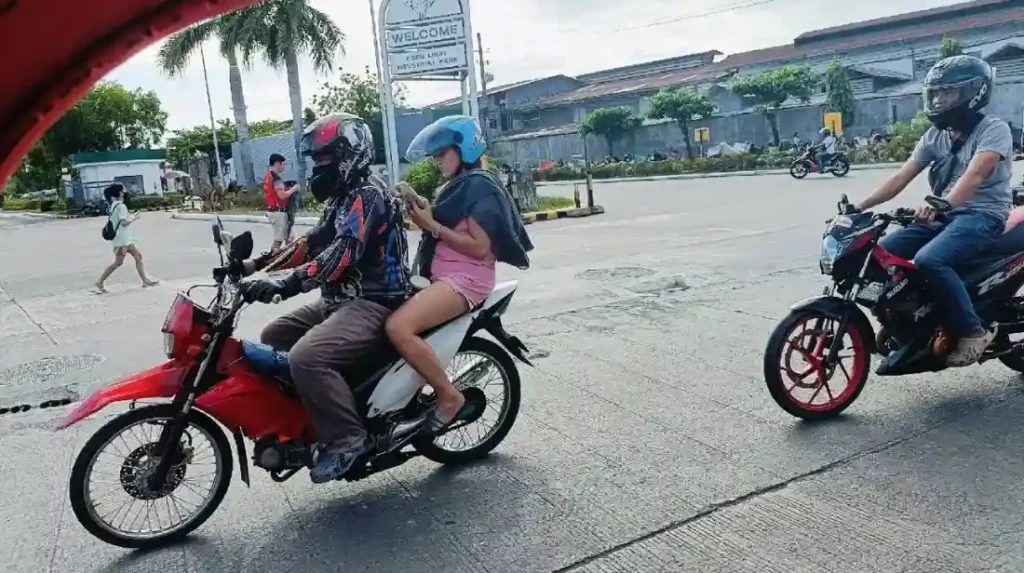
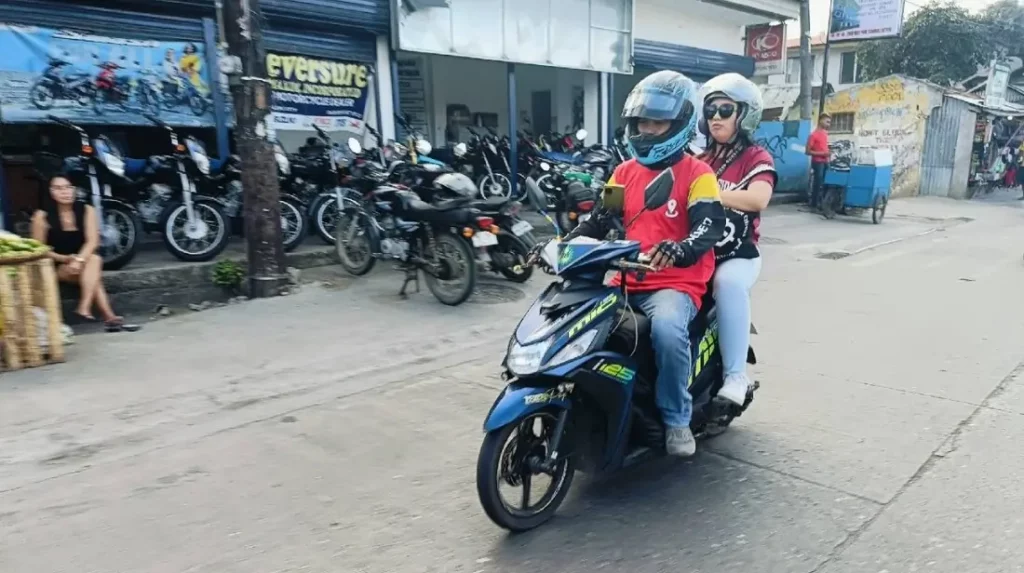
V-hire
Cebuanos call “vehicles for hire” V-hire to take passengers to specific towns and cities in the province of Cebu. V-hires are helpful modes of transportation in Cebu because they travel faster to different towns than buses.
If you are on a group tour, V-hires are the best option as they ply various routes across the island of Cebu. Fares also vary, but the minimum is at least Php120.00 depending on your destination.
What to expect
- Just like jeepneys, V-hires carry 16 to 18 passengers.
- V-hires ply various routes to Southern Cebu, Northern Cebu, and even to the mountainous roads known as the Cebu Trans-Central Highway.
- There are V-hire terminals in SM City Cebu, South Bus Terminal, and IT Park.
- V-hires are just vans, franchised and registered in the transportation office as public utility vehicles.
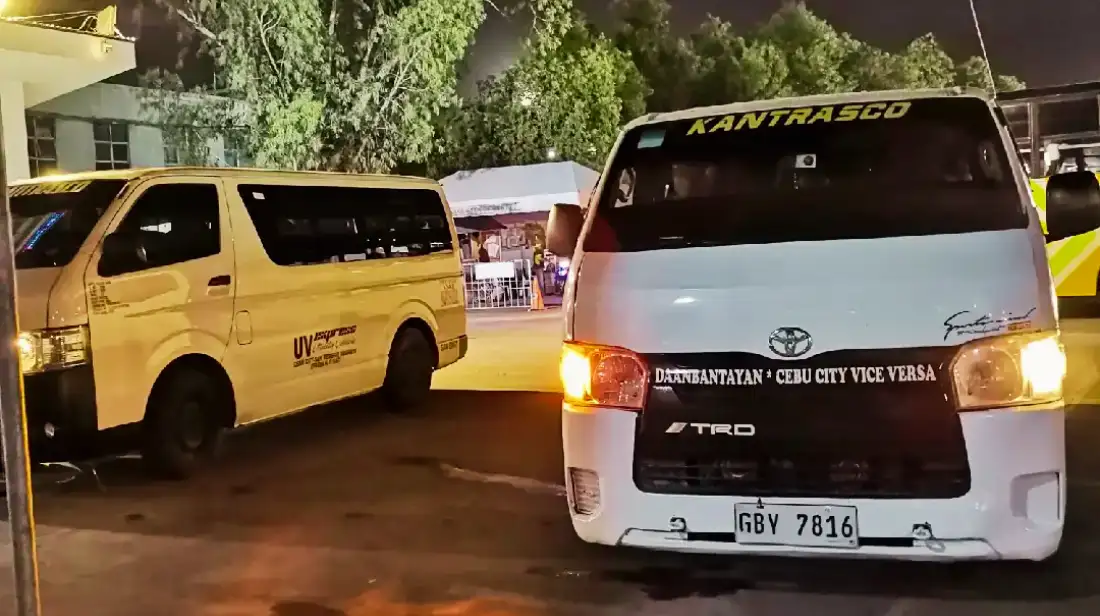 Contributed photo by Ms. Rita
Contributed photo by Ms. Rita
Trisikad
The trisikad is just like the tricycle – a three-wheeled vehicle, but it is usually smaller and eco-friendly. It is a bicycle with a sidecar, and there is no need for an engine to operate it. The driver usually pedals to the passenger’s destination.
When it rains, the trisikad is helpful to those who commute because it can take you to and from your house directly and easily. You must try this mode of transportation in Cebu and embrace this eco-friendly transportation.
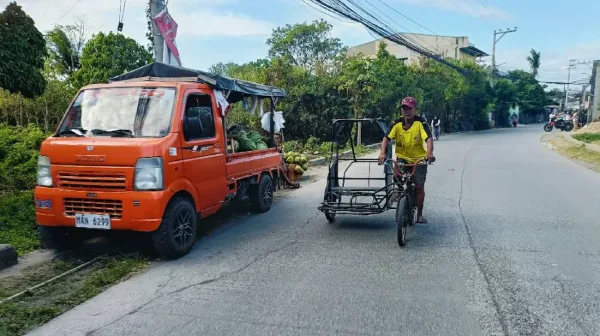
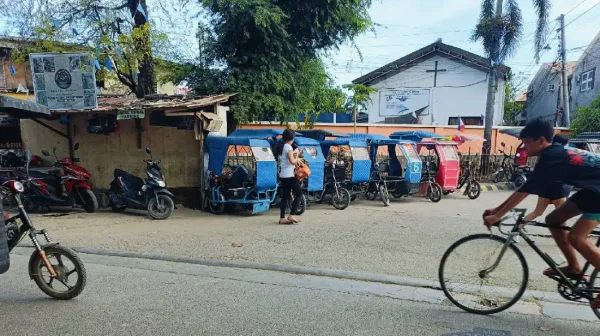
E-bike
E-bikes or electronic bikes have been commonly used as public transportation in Cebu since the pandemic. They traverse the narrow streets of some areas where people usually walk to the highway before they ride other public transportation.
An e-bike is also three-wheeled, but unlike the trisikad, it is electronically operated, faster, and more convenient. It doesn’t make a sound, though so you will never notice that an e-bike is coming behind you.
Two passengers can be accommodated by the e-bike. Try this one when you stay at a hotel far from the highway where no public transportation is available.
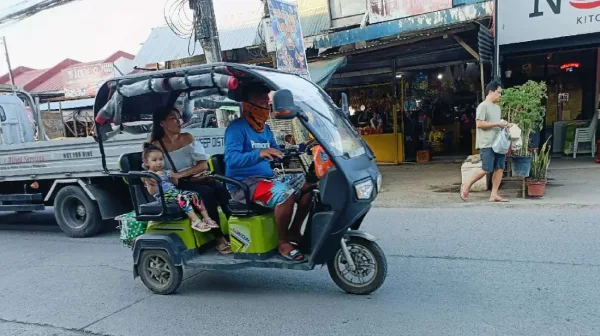
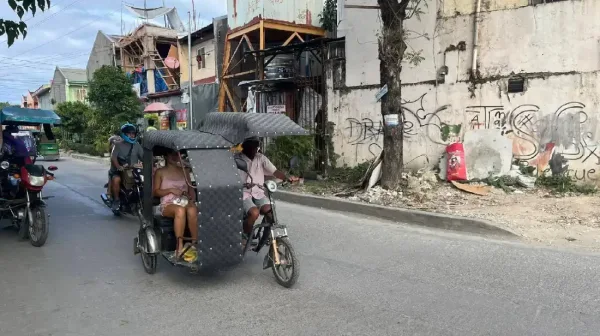
For foreign and local tourists visiting the province, there are other modes of transportation in Cebu that are also common in other countries like buses, taxis, and car rental services. These local transports from Mactan Cebu International Airport are conveniently ready to serve you upon your arrival.
Cebu offers a range of traditional transportation options for every commuter. Whether you try the jeepney, trisikad, habal-habal, or V-hire, there is always an unforgettable way to experience Cebu. After this experience, you get to say, “It’s more fun in Cebu!”
Choose your best and most convenient options of transportation in Cebu, but never forget to experience the unique ones.
Let’s talk about your experience
Have you experienced riding on all the mentioned modes of transportation in Cebu? Feel free to share your experience with us and let’s talk about it.




